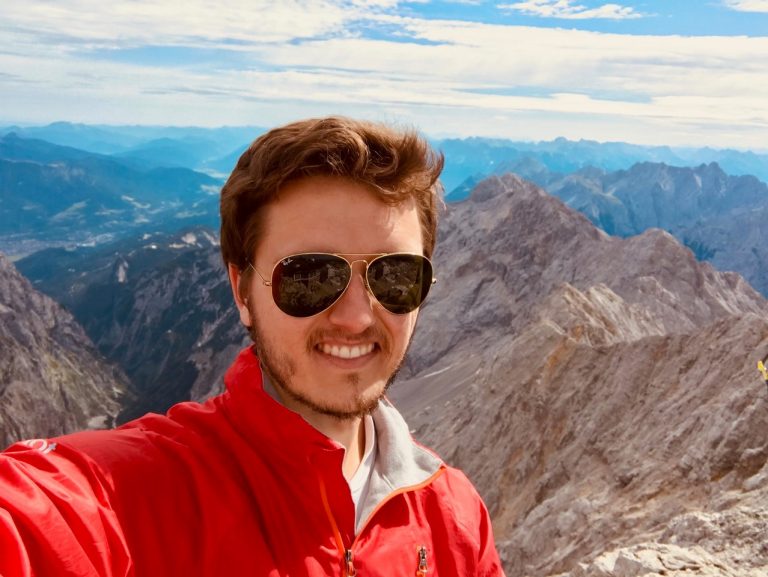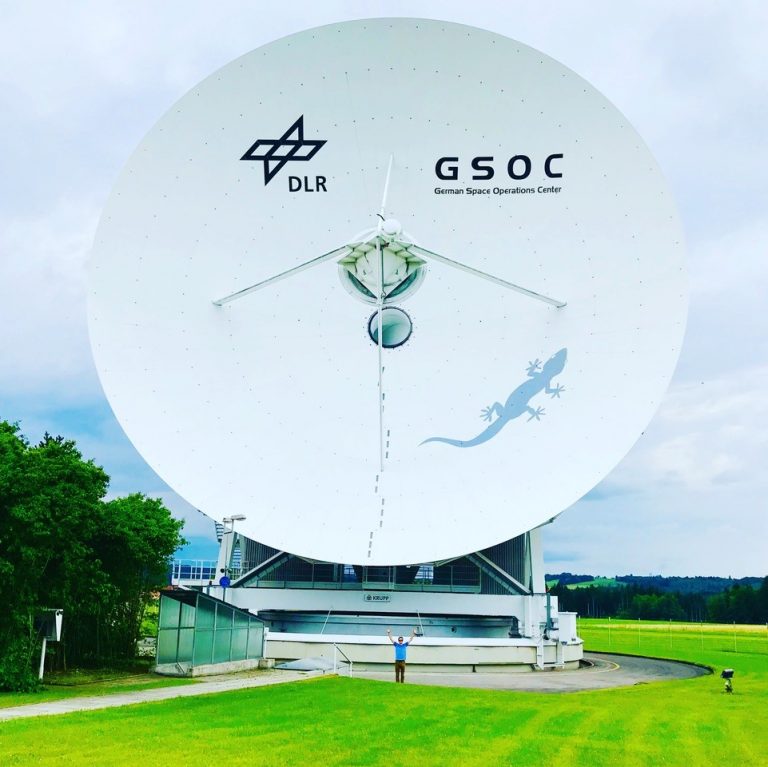
Never one to let an opportunity pass him by, Ilija Hristovski used a networking opportunity at UBC Okanagan’s Aerospace Industry Night to establish an international research internship in Germany at the German Aerospace Centre (DLR).
Hristovski, one of the executives of the UBC Okanagan Aerospace Club, not only helped organize the 2017 Industry Night but forged a relationship with a DLR representative who was a guest speaker at the event. The DLR representative (who had a specialty in manufacturing engineering) referred Hristovski to colleagues at DLR’s Institute of Communications and Navigation.
“Networking and persistence definitely pay off when you have a particular goal in mind,” explains Hristovski, who is fast-tracking from his MASc to a PhD next spring.
Since DLR typically does not accept international undergraduate internship students, Hristovski had to wait until he started his Master’s before being accepted into a six-and-a-half month internship. His experience this summer at DLR translated into directed studies course credits towards his MASc.

Hristovski’s research at DLR focused on correcting atmospheric turbulence for ground-to-satellite communications using a laser guide star method. Hristovski describes the process as shooting a laser into the upper atmosphere to help optical signals establish an undisturbed path to reach space. “The initial laser establishes a path for the optical signal to follow; basically bending or adjusting the beam in the most efficient way possible to reduce the negative effects caused by the atmosphere.”
DLR’s Institute of Communications and Navigation is a global leader in this field. The facility holds the current world-record in free space optical communications links at the highest data rate.
“Where UBC Okanagan excels at component level processes and improvements, I found that DLR was working at the systems’ level,” says Hristovski. Working in an international environment with interns from around the world, Hristovski and the research team worked on several confidential projects that resulted in one poster presentation and several internal reports.
Although most of his time in Germany was spent in the lab, Hristovski was able to explore some of the surrounding villages when the team undertook a 10-kilometre optical link test between mountains. “The work was so interesting that you’d wake up in the morning, and want to run to the lab,” says Hristovski.
One of the biggest accomplishments for Hristovski stemming from this experience is building a PhD collaboration between his supervisor, Jonathan Holzman and colleagues at DLR. Hristovski will most likely return to Germany next summer and start experiments related to those studies.
“I’m ecstatic about this next chapter of my research, and can’t wait to get started.”